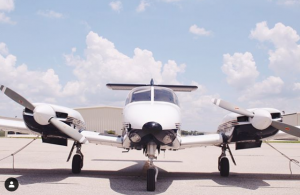Greetings, aspiring pilots! If you have always dreamed of flying high in the sky and traveling to exotic destinations, then obtaining a commercial pilot license may be the perfect career path for you. This website will guide you through the process of becoming a fully licensed commercial pilot and provide you with all the necessary information to embark on this thrilling journey. So buckle up and let’s begin!
The Basics of a Commercial Pilot License
Firstly, let’s define what exactly is a commercial pilot license. According to the Federal Aviation Administration (FAA), a commercial pilot license allows you to fly an aircraft for compensation or hire. This means that you can get paid to fly airplanes and transport passengers or cargo from one destination to another. It is an advanced level of pilot certification, building upon the skills and knowledge acquired through private pilot training.

To obtain a commercial pilot license, you must meet certain requirements set by the FAA. These include being at least 18 years old, able to read, speak, write, and understand English, and hold a private pilot license. Additionally, you must log at least 250 hours of flight time, including 100 hours as pilot in command and 50 hours of cross-country flights. You will also need to pass a written exam and a practical test administered by an FAA designated examiner.
The Training Process
Once you have met all the requirements, it’s time to begin your training towards obtaining a commercial pilot license. The training consists of ground school classes, flight training, and solo flying hours. Ground school classes cover a wide range of topics such as aerodynamics, aircraft systems, weather, navigation, and federal aviation regulations. Flight training includes practicing maneuvers, emergency procedures, and cross-country flights. You will also need to log at least 10 hours of solo flight time.
One of the most exciting parts of training for a commercial pilot license is building up your flight time by flying with an instructor or solo. This allows you to hone your skills and gain valuable experience in different weather conditions and airports. It’s also an excellent opportunity to explore new destinations and see the world from a whole new perspective.
The Benefits of Obtaining a Commercial Pilot License
Aside from living out your childhood dream of becoming a pilot, there are many benefits to obtaining a commercial pilot license. Firstly, it opens up a world of job opportunities in the aviation industry. From airlines to corporate companies, the demand for commercial pilots is always high. With the aviation industry growing rapidly, there has never been a better time to join this exciting career field.
In addition, being a commercial pilot comes with a great sense of responsibility and accomplishment. You will be responsible for the safety and well-being of your passengers, making sure they reach their destination safely and on time. Moreover, the financial rewards of being a commercial pilot are quite attractive, with a potential for high salary and benefits as you gain more experience and move up in your career.
Continuing Education and Career Advancement
As a licensed commercial pilot, the learning never stops. You will need to participate in recurrent training and evaluations throughout your career to maintain your license. This includes keeping up-to-date with new regulations, technology, and procedures. Additionally, you can further advance your career by obtaining additional certificates and ratings such as a multi-engine rating, instrument airplane rating, or flight instructor certificate.
Moreover, as a commercial pilot, you have the opportunity to expand your career beyond passenger or cargo transportation. You can become a flight instructor and pass on your knowledge to aspiring pilots, or even fly for the military or government agencies. The possibilities are endless, and the sky is truly the limit in this exciting and dynamic industry.
In Conclusion
Obtaining a commercial pilot license is a challenging and rewarding journey that requires dedication, hard work, and determination. It’s a career that offers adventure, responsibility, and endless opportunities for personal and professional growth. So if you have a passion for flying and a desire to make a difference, then don’t hesitate to pursue your dream of becoming a commercial pilot. As they say, the best view comes after the hardest climb. Good luck, and happy flying!
